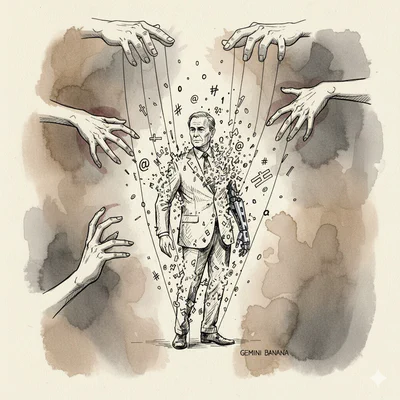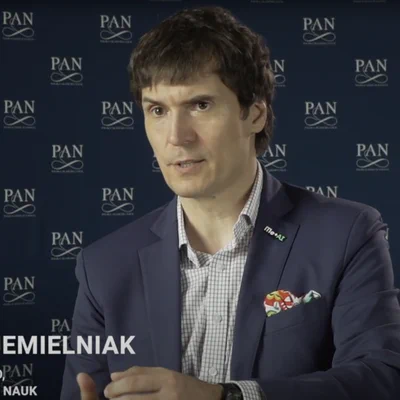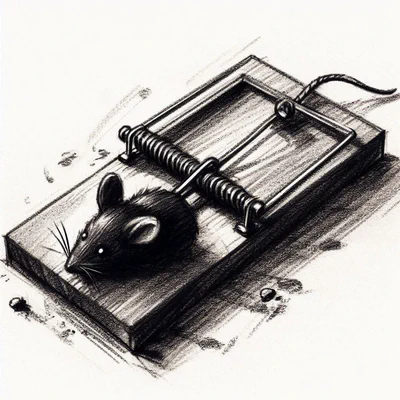An analysis of Dawid Wildstein's article on conspiracy theories and manipulation in Polish politics, in the context of the propaganda war between PiS and PO.
Table of Contents
For the past six months, I have been gathering materials for my articles on various conspiracy theories surrounding Law and Justice (PiS), particularly the overarching conspiracy theory suggesting that PiS is a pro-Russian party, allegedly founded and controlled by Russian intelligence services. Today’s article kicks off a series on conspiracy theories surrounding PiS.
In this article, I will focus on Dawid Wildstein’s article Tusk Repeats Smolensk: Dawid Wildstein on Layered Propaganda published on niezalezna.pl, which analyzes the three layers of propaganda supposedly used by Civic Platform (PO) and especially by Donald Tusk.
I chose this article because Wildstein responds to the current narrative being built in Poland that Law and Justice is a pro-Russian party with ties to the Kremlin, while also constructing a conspiracy theory that counters the increasing scandals and unsettling facts surrounding PiS during its time in power, which suggest shady connections and actions harmful to Polish national interests by PiS politicians and associated businessmen.
The Three Layers of Tusk’s Propaganda According to Wildstein
First, let’s outline Wildstein’s claims about the three layers, and then we’ll delve into an analysis of the manipulation and disinformation in the context of the war over conspiracy theories.
The propaganda operation aimed at painting PiS as a pro-Russian party, and Donald Tusk and his faction as Putin’s adversaries, is something exceptionally grotesque and false, even by the poor standards of the Third Republic (III RP). It can only be compared to one thing – the level of falsification of Poland’s public debate after the Smolensk Tragedy.
This colossal propaganda operation by PO, intended to completely falsify history, present-day reality, and even destroy the very meaning of certain concepts, takes the form of an onion. It consists of at least three layers, each more hidden but also more significant. source: niezalezna.pl
So, according to Wildstein, Tusk’s narrative is built on three layers:
1. The First Layer: Managing Public Emotions
Wildstein argues that PO uses propaganda to manipulate public emotions in Poland. The aim is to create an artificial reality that diverts Polish people’s attention away from real problems. Scandals involving PiS are fictitious and fabricated, according to Wildstein, who suggests that PO is trying to cover up its failures and embarrassments, such as price hikes, poor crisis management, and internal conflicts within the ruling coalition.
2. The Second Layer: Disgusting the Public
The second layer of propaganda is meant to disgust the public with certain topics, such as Russian influence in Poland. Wildstein claims that this layer is designed to create informational chaos and sow doubt about the authenticity of the issues being discussed, like PiS’s alleged ties to corruption. He compares this to the actions taken after the Smolensk crash, where, according to him, the aim was to drown the topic in hysteria and noise so that Poles would lose interest and stop taking it seriously.
3. The Third Layer: Preparing for a Reset
According to Wildstein, the third layer of propaganda pertains to the European context and involves a broader action by the Brussels establishment and political elites in the EU, especially in Germany. He suggests that scaring people with war and the narrative of Russian agents is meant to pave the way for a future reset of relations with Russia, which would come at Ukraine’s expense.
Today’s propaganda operation by PO aims, in the long term, to discourage Poles from touching on the subject of Russian influence in Poland. (Dawid Wildstein)
Wildstein believes this propaganda is softening European societies so they will be more willing to accept such a reset. In the context of recent news about hundreds of millions allegedly embezzled for generators supposedly meant for Ukraine, Wildstein’s theses sound particularly ominous and bizarre. But for the reader of niezalezna.pl, selective perception and a well-timed information feed are essential, so let’s now examine how Wildstein advances his agenda.
Dawid Wildstein - Building a Conspiracy Theory of Tusk Being Controlled by Germany
Having presented the main points about the three layers of PO’s manipulation, I would now like to analyze the semantic layer and trace the arguments, manipulation techniques, and disinformation present in the text. This is crucial because Wildstein’s article provides a clear example of the mechanisms used to create conspiracy theories and how they are weaponized in politics.
Wildstein crafts a complex, multi-dimensional narrative designed to discredit PO and expose its supposed manipulation and disinformation. The crux of his argument is that PO acts in the interest of external forces (read: conspiracy theory) rather than Poland’s interests, in contrast to PiS and the true patriots. Let’s dissect this theory further.
Ad Hominem Attack on Tusk and Analysis of Other Manipulation Techniques
The main target of Wildstein’s attack is Donald Tusk, who supposedly uses propaganda to manipulate public emotions. Wildstein paints Tusk as a villain to demonize the PO leader, suggesting that his actions are intentionally harmful to the country. This classic ad hominem attack accuses Tusk of ill intent. Civic Platform, and especially Tusk, supposedly create a false narrative to distract from the real problems. Wildstein is preparing the ground for the flood of scandals currently engulfing the mainstream, trying to inoculate niezalezna.pl readers against any information that questions PiS’s patriotic intentions.
The first and most obvious layer is the attempt to use propaganda to manage social emotions in Poland, to create an artificial reality that distracts Poles from what is really happening in our country. (Dawid Wildstein)
Selective Perception - Cherry Picking
A curious tactic Wildstein uses is downplaying the achievements of PO politicians, focusing on smaller projects while ignoring other actions. This perfectly illustrates how such arguments resonate in the bubble of “true patriots,” who mock the pedestrian bridge built in Warsaw. This is a classic manipulation technique known as cherry-picking—selectively choosing facts to ridicule an entire group.
The only achievements of the current “smiling coalition” are the construction of the openness footbridge in Warsaw and a planned tramway in Jagodno. Beyond that, we are witnessing a series of fiascos. (Dawid Wildstein)
Classic Conspiracy Theory - Government Controlled by a Foreign Power
There is also the accusation that PO is acting against Polish interests and taking orders from Berlin. Naturally, Tusk is the primary villain here. An anti-German narrative is constructed, suggesting that, in contrast to PiS’s alleged ties to the Kremlin, the Civic Platform is controlled by Germany. All of this is peppered with accusations of incompetence, as Wildstein undermines Tusk and PO’s credibility, building a classic conspiracy theory, suggesting that the government is being controlled by a foreign power. Ironically, PO accuses PiS of the same thing—by claiming they are tied to the Kremlin and threatening Polexit.
Instead, we are witnessing successive government embarrassments on the EU stage, like in negotiations over the Green Deal. Delaying nuclear projects, blocking the construction of CPK, the terminal in Gdańsk, the unblocking of the Oder River, and abandoning drug production funded by EU money are actions that blatantly contradict Polish interests but align with orders from Berlin. (Dawid Wildstein)
Unblocking the Oder… out of mercy, I will not comment on this, because PiS really did a great job unblocking the Oder.
Whitewashing PiS by Reversing the Roles
Wildstein tries to whitewash his own political side by using the technique of victim-blaming, essentially reversing the roles of victim and aggressor. This tactic allows him to paint PiS’s aggressive policies and undermining of the judiciary, as well as corruption scandals, in a more favorable light by continuing to discredit political opponents without addressing the actual allegations against PiS.
He diverts the public debate from real problems into the most hysterical and absurd areas, once again making PiS the totem around which all politics should revolve. (Dawid Wildstein)
Projecting One’s Own Techniques onto the Opponent
Now comes a really amusing part—Wildstein accuses PO of using the fear of war to manipulate society, while using a similar technique to dissuade readers from supporting PO. He selectively chooses facts and conveniently forgets that PiS has also stoked war fears, for example, with its massive military purchases. This is an example of projection, where the author attributes his own manipulative techniques to others. It’s worth noting that conspiracy theorists often project their own flaws and manipulations outward. Just listen, ask questions, and analyze.
Scaremongering about war is a key element of their current propaganda, and the “Russian agents” narrative is just meant to amplify it. (Dawid Wildstein)
I hope the above excerpts illustrate the manipulation and disinformation techniques used to discredit PO, particularly by portraying the party as the main culprit behind Poland’s problems. These actions also serve to cover up the scandals and conspiracy theories regarding PiS’s ties to Eastern businessmen and Russian intelligence services, which allegedly acted against Polish national interests during PiS’s time in power.
Such an approach aims to strengthen the position of PiS’s political side by demonizing opponents and reinforcing the manipulation effect within the right-wing echo chamber, where conspiracy theories thrive and are hard to escape.
Dramatis Personae - Piotr Pytel (Patron of the Conspiracy)

However, to the surprise of readers, Tusk and PO are not the only characters in the story. Other names also appear, such as former head of Military Counterintelligence Piotr Pytel (appointed by Prime Minister Tusk), who has repeatedly publicly accused PiS of having ties to Russian intelligence. Pytel has been a vocal critic of the PiS government and former Defense Minister Antoni Macierewicz (2015-2018). Recently, he said in Gazeta Wyborcza:
Gen. Piotr Pytel: Russia is already here. Its greatest success in Poland is PiS. source: Gazeta Wyborcza
Let’s remember that Piotr Pytel was accused during PiS’s time in power of illegal collaboration with Russian intelligence service FSB. Right-wing media accused him of treason, with charges including unauthorized contacts with FSB representatives and allowing a Russian intelligence officer access to otherwise inaccessible information. Pytel has repeatedly claimed that these attacks are politically motivated, aimed at discrediting him.
Pytel’s name is mentioned only once, but it is crucial in building the conspiracy theory. Let’s analyze why and how Wildstein introduces these figures into his narrative of the great reset conspiracy.
Wildstein introduces Pytel using a guilt by association technique. Donald Tusk, during his time as President of the European Council, publicly expressed support for the general and his colleagues, describing them as examples of responsibility and patriotism. What’s more, Tusk was questioned in the case involving SKW’s cooperation with FSB, further tightening the media links between these figures. Wildstein uses this to undermine Tusk’s credibility by associating him with figures allegedly working against Poland.
Naturally, presenting Pytel as a controversial figure is meant to weaken his credibility. In the context of accusations of PiS collaborating with Russian services, Pytel is portrayed as evidence that it is actually PO and the opposition that collaborates with Russian intelligence. Role reversal. Pytel’s alleged cooperation with FSB fits into the strategy of emphasizing the threat posed by Russia and external dangers. Does it logically fit together? It seems that, for readers of niezalezna.pl, logic isn’t the point.
The perfect example is the construction of CPK, which, as we read in an interview with Newsweek given by Pytel, turns out to be a move favoring Moscow. (Dawid Wildstein)
Wildstein suggests that Pytel is part of PO’s information strategy. He hints that these actions are part of a larger, hidden agenda. Pytel is additionally discredited as being a tool in PO’s hands. Even if PiS’s opponents do not openly collaborate, Wildstein implies that they share a hidden plan and agenda.
Dramatis Personae - Magdalena Środa (Patron of the Conspiracy)
A perfect example was a recent statement by Magdalena Środa, in which she asked: how much longer will this stupid Ukraine, trapped in the miasma of senseless patriotism and nationalism, be responsible for the deaths of its citizens when it could simply give up part of its territory to Russia and save them? (Dawid Wildstein)
Using Magdalena Środa’s name in the article is intended to connect her to the hidden agenda while discrediting her as an individual and as a representative of the total opposition. Her extreme and controversial views are attributed to the broader opposition movement. This is a classic ad hominem attack, where a personal attack serves to discredit an entire group.
Of course, Środa is just a mouthpiece for the narrative of European salons. Moreover, looking at the reaction, it’s clear she “jumped the gun” with such “arguments.” (Dawid Wildstein)
Magdalena Środa represents the European salons, which, as we know from PiS’s narrative, threaten Polish sovereignty. Here we see generalization—Środa’s views are applied to the entire opposition, specifically PO. Wildstein reduces and simplifies Środa’s opinions, trying to convince the reader that everyone who thinks like her, including PO (even though Środa is not in PO), shares these extreme views. This is an obvious simplification and manipulation.
Seeing the reaction, it’s clear she jumped the gun with such arguments. Nevertheless, Professor Środa shows us the direction PO’s propaganda will take (following Brussels’ discourse). (Dawid Wildstein)
Similarly, in the above quote, a statement is taken out of context and, using manipulation, Wildstein projects a fabricated reality. Let’s not forget that the more times such manipulation is repeated, the more real it seems, despite its manipulative nature.
Numbing Before the Operation
But what is the final agenda, the grand conspiracy that Tusk and the patrons of this conspiracy have planned? It’s an operation to distract from the real investigation into Russian influence in Poland while preparing the ground for management by Brussels, Germany, or perhaps Russia… here Wildstein can’t seem to decide who is controlling things, but he is sure it’s an anti-Polish conspiracy. In the final sentence, he no longer mentions Germany, only Russian influence, likely projecting his own side’s fears about what’s to come.
In today’s article, I analyzed Dawid Wildstein’s article on niezalezna.pl, where I examined his thesis about Tusk’s three layers of propaganda and the final great reset, which also features prominently in recurring conspiracy theory narratives.
By employing various manipulation techniques—from simplifications, generalizations, ad hominem attacks, selective fact-picking, and omissions—Wildstein demonizes political opponents and creates the impression of an ongoing conspiracy aimed at destroying PiS and stripping Poland of its sovereignty.
Wildstein’s article serves as a numbing agent designed to immunize Law and Justice’s supporters against the upcoming wave of scandals from PiS’s time in power and the probable exposure of unsettling ties between PiS politicians, businessmen, and the Kremlin. All this is achieved through selective and emotional manipulation of readers, using extreme statements to reinforce negative narratives.
I hope I’ve demonstrated how Wildstein manipulates, using guilt by association to present Tusk’s multi-layered propaganda, while the connected dramatis personae, with their controversial statements and actions, are portrayed as part of Tusk’s larger strategy of deception and harm to Poland.
Sources
Poland arrests military intelligence chiefs for ties to Russian spies
NIEZALEŻNA.PL - Tusk Repeats Smolensk: Dawid Wildstein on Layered Propaganda
Russia is already here. Its greatest success in Poland is PiS - source Gazeta Wyborcza





